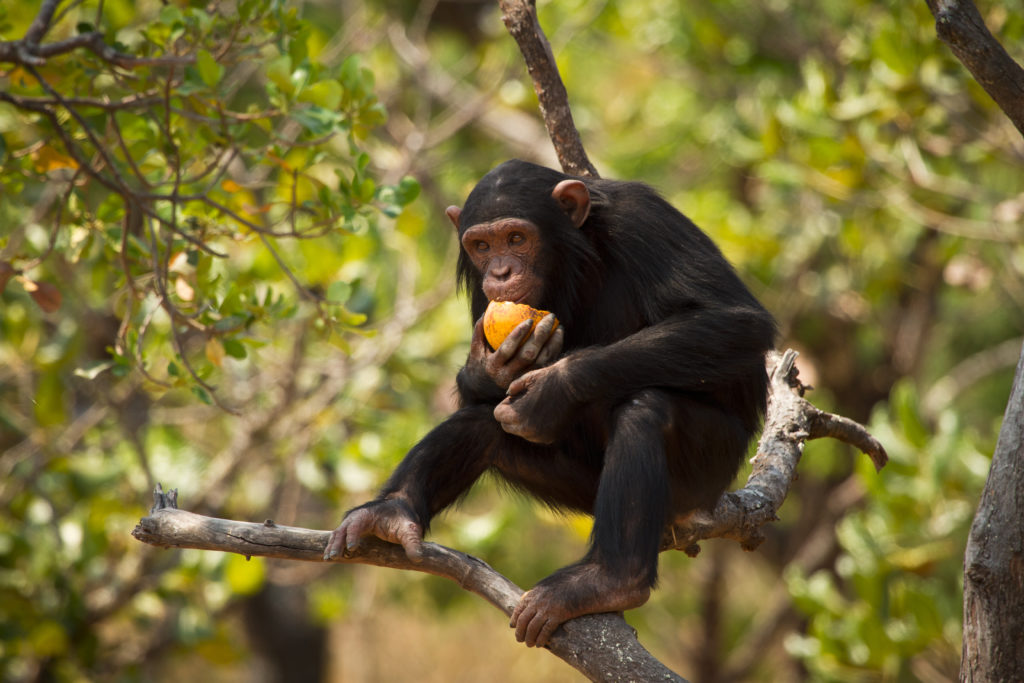
This had to be a story I covered – monkeys and alcohol sounds too good to pass up. But this is also linked to the “drunken monkey” hypothesis: that humans developed their love for alcohol in earlier primitive times accidentally, and then intentionally, eating fruit that had fermented.
Indeed, UC Berkeley biologist Robert Dudley has been fascinated by the human attraction to alcohol and outlined the drunken monkey hypothesis in his book, eight years ago now. In this study lead by Christina Campbell, they tracked spider monkeys in Panama and measured alcohol content in their discarded fruit and found that these contained 1-2% alcohol.
What’s more they then measured urine of these monkeys and could see metabolites which are produced by the metabolism of alcohol. This shows that not only were these monkeys consuming alcohol but that they could metabolise this. This is a direct test of the drunken monkey hypothesis and suggests that our affinity to alcohol developed in a similar way.
However, it is no excuse to get stuck into your booze – research has shown that just about any dose of alcohol is bad for you – on the other hand this may suggest that low levels of alcohol consistently may be ok – just that our alcoholic beverages all contain a lot more than this 1-2%.
Reference:
Christina J. Campbell, Aleksey Maro, Victoria Weaver, Robert Dudley.
Dietary ethanol ingestion by free-ranging spider monkeys (Ateles geoffroyi ).
Royal Society Open Science, 2022; 9 (3)
DOI: 10.1098/rsos.211729
More Quick Hits
Why it pays for companies to help workers have a good day in the office
usiness and executives in those businesses are more than keen to get a competitive advantage. To this end they invest heavily in technology and getting the right people to do the job. But, I am sure, we are all more than aware that the work...
Vaccination to Keep Your Memory?
Quick HitsDaily brief research updates from the cognitive sciences ho wouldn’t want to keep their memory when aging?! Well, researchers have just announced some promising results in mice enabling them to keep their memories and avoid some of...
Can Having More Children Reduce Cognitive Functioning?
Quick HitsDaily brief research updates from the cognitive sciences aving more children and late life cognition is not something that is generally researched. There are more obvious avenues such as diet, education, exercise, or socio-economic...
How Sleep Helps Your Brain Manage Fear
Quick HitsDaily brief research updates from the cognitive sciences leep on i” is common advice for many reasons. Often to consolidate thoughts and help boost creativity. This is a well-known effect. We also know that sleep is the time that helps to...
Video games can boost children’s intelligence
Quick HitsDaily brief research updates from the cognitive sciences ell, this is not the answer many of us would expect, and it goes against other logic of spending more time doing other things such as reading or socialising with friends...
Just how many people get COVID brain?
Quick HitsDaily brief research updates from the cognitive sciences here are many questions still open about COVID and the brain. There is no doubt that long COVID exists, and this can have dramatic impacts on people’s lives. But just how...
Brain networks and losing weight – successfully or not
Quick HitsDaily brief research updates from the cognitive sciences s weight loss all in the mind? Well, with the danger of oversimplifying a complex topic, this latest research shows it is, and shows precisely how and with what networks. So,...
Reversing aging – with poo!
Quick HitsDaily brief research updates from the cognitive sciences ho wouldn't want to age better - well the results of an unsual study are in and the results are promising and may make many of you who are aging prick up your ears. The...
Brisk walking slows biological aging
Quick HitsDaily brief research updates from the cognitive sciences f you want to age better, then walk quicker, or those who walk quicker, age slower. That is the result of a recent study of 400,000 UK adults mapped to genetic markers of age...
Learning at double-speed?
Quick HitsDaily brief research updates from the cognitive sciences ouldn’t it be great if we could learn things double speed? Well, maybe we can. At least according to a study out of the University of California. During the pandemic many...










